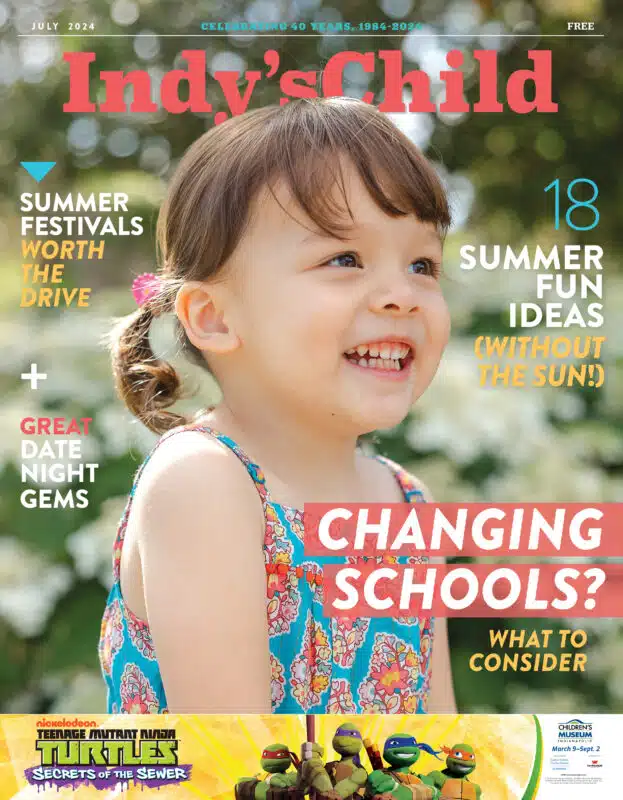Shake off cabin fever and redirect pent up energy with healthy outdoor play. The Society of Health and Physical Educators recommends that children get 60 minutes of outdoor play per day, which contributes to a child’s overall growth and development. Combining exercise with body awareness can be a great way to teach your child and have fun in the process.
“Preschoolers are developing a sense of self and spatial awareness. Understanding how their body moves is an important step in brain and physical development,” says Susan Michal, director of early childhood education at The Children’s Museum of Indianapolis. Children learn to identify body parts while playing the game “Simon Says,” and learn left from right through “mirror” games. They slowly grasp spatial concepts, such as on top, below, behind and beside. Actively participating helps children figure out how their muscles work and teaches body coordination at the same time.
Little ones are constantly experimenting and overcoming personal challenges with balance and flexibility. They surprise themselves and love to show how they can walk backward, balance on one foot or do a somersault. Educators believe meaningful play like this helps children develop socially, emotionally, physically and cognitively. Engaging in larger movements, such as crawling and jumping, improves gross motor skills. One way to emphasize what they are learning is to turn on music and play “freeze dance” or imitate the movement of animals.
Transitioning from free play to organized sports as your kiddos get older can be challenging. However, visiting places like Riley Children’s Health Sports Legends Experience at The Children’s Museum of Indianapolis helps ease them into a structured setting, while giving them the space to experiment on their own.
Athletic activities can also teach kids important life skills. Playing and working with others toward a common goal encourages teamwork and good sportsmanship. Engaging in a sport also allows children to practice basic life skills, such as following safety rules, stretching before play, keeping hydrated and eating healthy to be stronger. The emotional value of a child participating in play with their family is also valuable because it brings everyone together to create a stronger bond. Staying active becomes part of a normal routine, leading to a healthy lifestyle that can last a lifetime.
The Riley Children’s Health Sports Legends Experience at The Children’s Museum of Indianapolis opens for the second season on March 16, 2019. Check www.childrensmuseum.org for discounts and extended hours in the summer.
**Photo Credit: The Children’s Museum of Indianapolis









